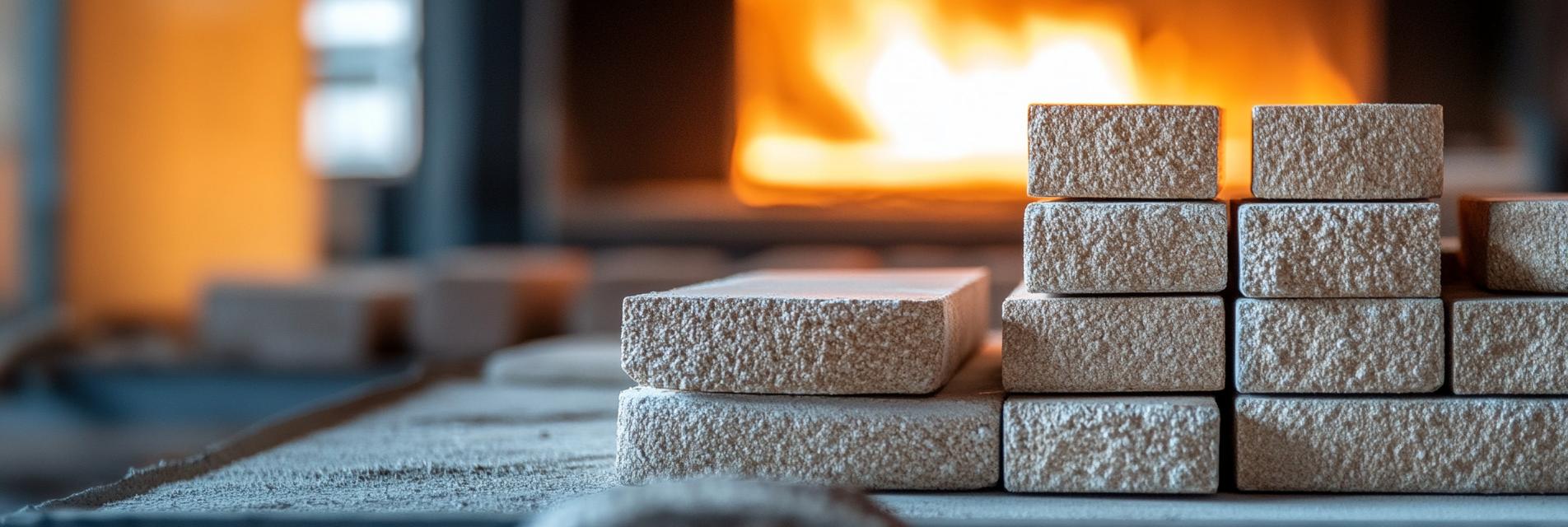.jpg?x-oss-process=image/resize,h_1000,m_lfit/format,webp)
In the high - temperature industrial sector, refractory materials play a crucial role. They are the backbone of various high - temperature processes, ensuring the stability and efficiency of operations. Among these, fused silica bricks have emerged as a remarkable option.
Fused silica bricks are high - purity, corrosion - resistant refractory bricks. They are typically used on the upper walls of kilns and are well - suited for the construction of low - alkali borosilicate glass furnaces. These bricks are made from high - purity silica, which gives them their unique properties.
At high temperatures, fused silica bricks exhibit excellent performance. They have a high viscosity, which means they can maintain their shape and integrity under extreme heat. For example, at temperatures around 1500°C, their viscosity can reach up to 10^6 Pa·s, which is significantly higher compared to some other common refractory materials. This high viscosity allows them to resist deformation and erosion.
In terms of strength, fused silica bricks also shine. They can withstand high mechanical stress at elevated temperatures. Tests have shown that at 1400°C, their compressive strength can be as high as 50 MPa. Additionally, they have a low thermal conductivity, usually around 1.0 - 1.5 W/(m·K) at high temperatures. This low thermal conductivity helps in reducing heat loss, making them energy - efficient.
Moreover, the drying and firing shrinkage of fused silica bricks is very small, typically less than 0.5%. This characteristic ensures dimensional stability during the manufacturing process and in actual use.
Let's compare fused silica bricks with other common refractory materials from multiple dimensions:
| Properties | Fused Silica Bricks | Ordinary Magnesia Chrome Bricks | High - density Low - porosity Silica Bricks |
|---|---|---|---|
| Thermal Expansion Coefficient (10^-6/°C) | 0.5 - 1.0 | 10 - 12 | 2 - 3 |
| Corrosion Resistance | Excellent against low - alkali borosilicate glass | Good against alkaline slag | Moderate |
| Thermal Conductivity (W/(m·K)) | 1.0 - 1.5 | 2.0 - 3.0 | 1.5 - 2.0 |
From the table, we can clearly see the advantages of fused silica bricks in terms of thermal expansion coefficient and thermal conductivity. The low thermal expansion coefficient means less stress and cracking during temperature changes, while the low thermal conductivity saves energy.
In a glass manufacturing plant, the use of fused silica bricks on the upper walls of the glass furnace has extended the service life of the furnace by 30%. The high - temperature stability and corrosion resistance of the bricks have effectively reduced the frequency of furnace repairs and replacements, saving a significant amount of cost and time for the plant.
Sunrise Factory has a strict production process for fused silica bricks. First, high - purity silica raw materials are carefully selected. Then, they are melted at extremely high temperatures in a special furnace. After melting, the liquid silica is cast into molds and slowly cooled to form bricks. During the entire process, strict quality control measures are in place. Every batch of bricks undergoes multiple inspections, including chemical composition analysis, physical property testing, and dimensional accuracy checks.
If you want to further understand the outstanding performance of fused silica bricks or have any questions about our products, please feel free to contact us. Our professional team is ready to provide you with detailed information and solutions.
.jpg)

.jpg)


